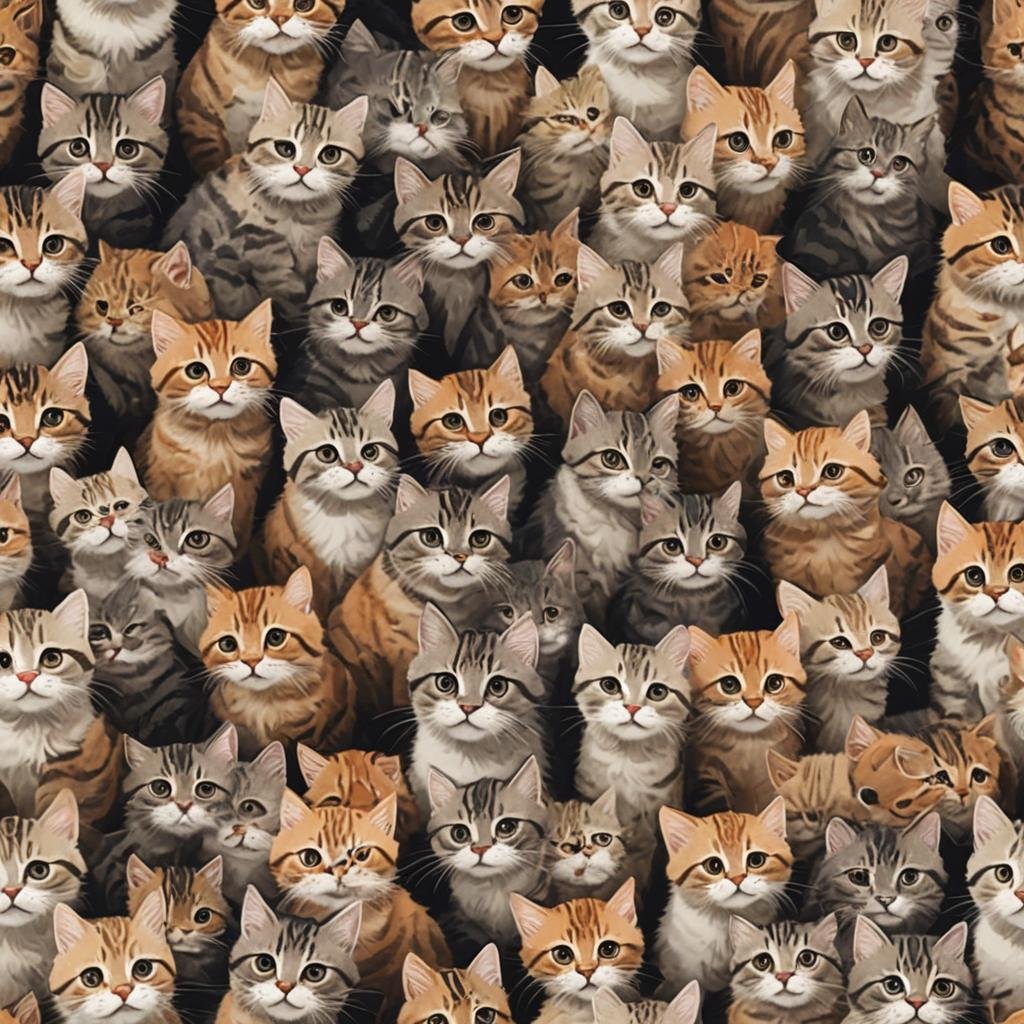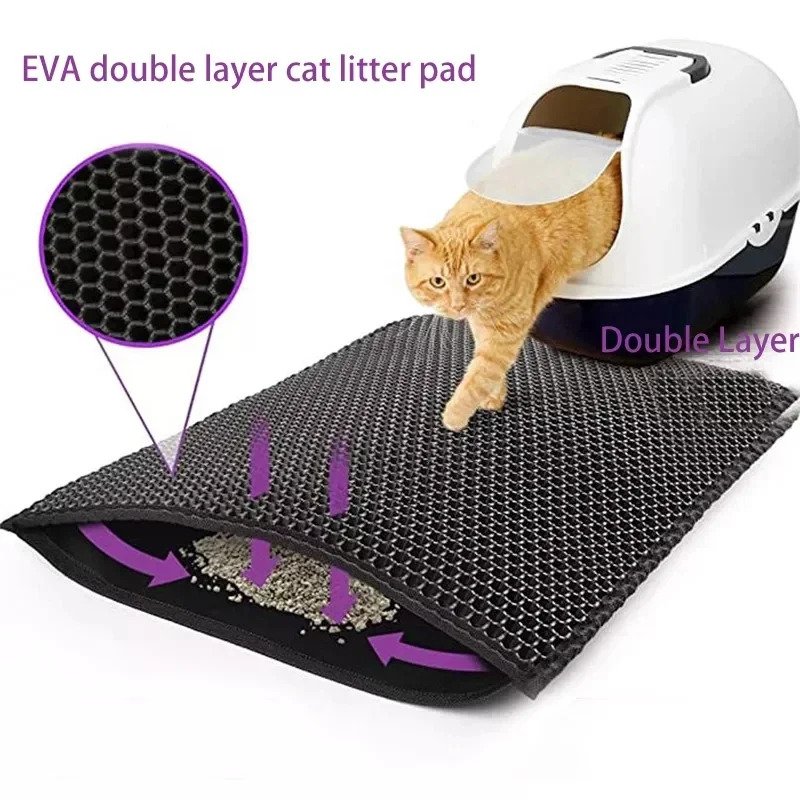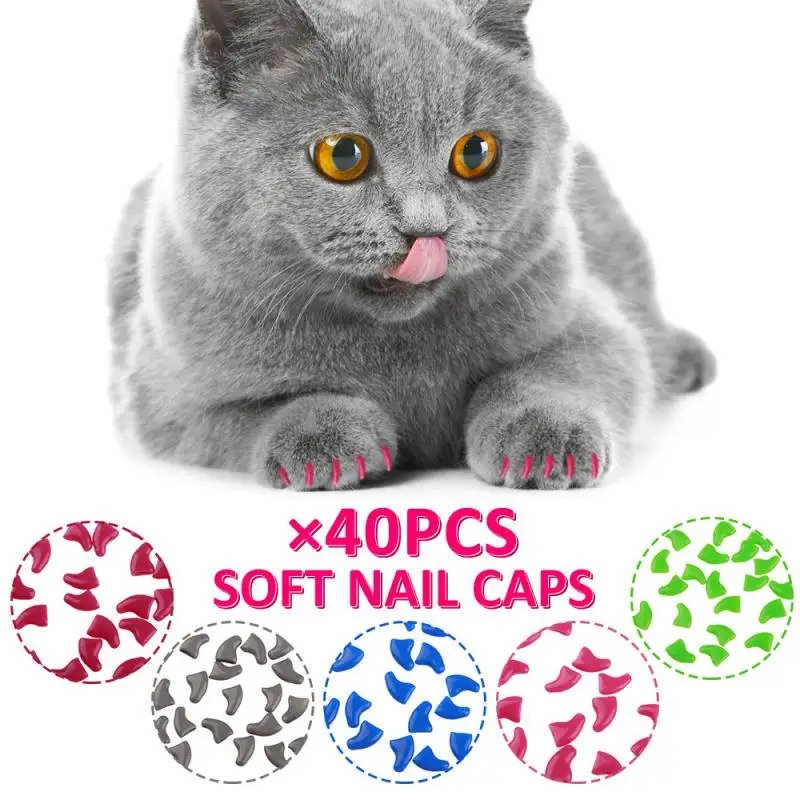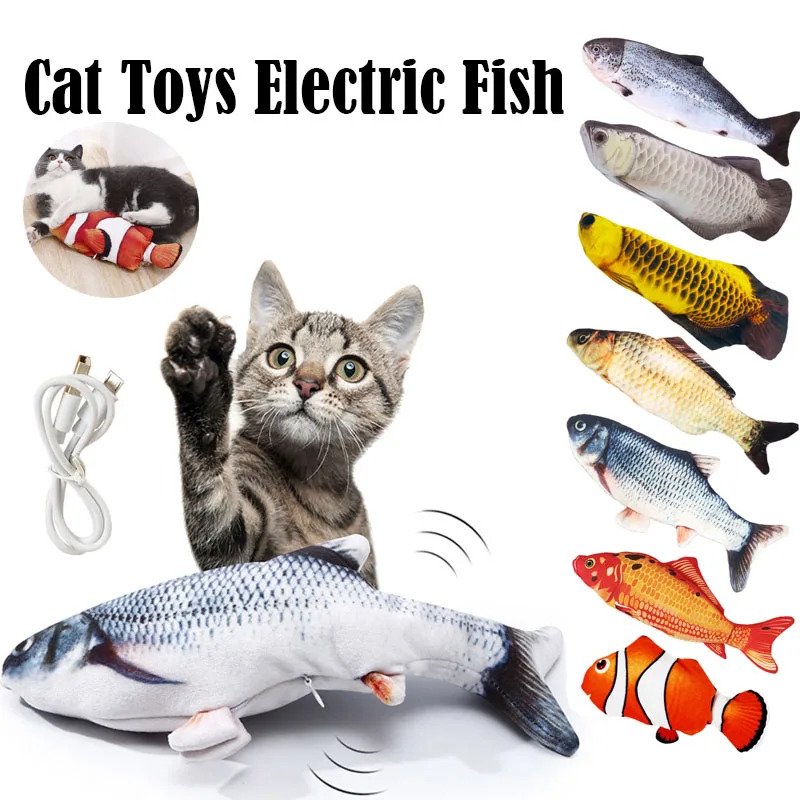
Introduction: The Importance of Matching Cat Breeds to Lifestyles
Choosing the perfect cat breed is not merely a matter of aesthetics or personal preference. It is crucial to consider your lifestyle when selecting a feline companion. Different cat breeds possess distinct temperaments, activity levels, and care requirements which can significantly influence the harmony of your shared life. By aligning a cat’s inherent traits with your daily routine and personal habits, you can foster a more fulfilling and enduring relationship.
Cats, much like humans, exhibit a wide range of personalities and behavioral tendencies. Some breeds are known for their playful and energetic nature, while others are more laid-back and enjoy a quiet environment. For instance, a highly active individual who enjoys engaging in physical activities might find a more dynamic breed like the Bengal or Abyssinian to be a perfect match. Conversely, someone with a more tranquil and relaxed lifestyle might prefer a breed like the Ragdoll or British Shorthair, which are known for their calm demeanor.
Moreover, the care requirements of different breeds can vary significantly. Long-haired breeds such as the Persian or Maine Coon require regular grooming to maintain their luxurious coats, while short-haired breeds like the Siamese or the Russian Blue are relatively low-maintenance in this regard. Busy professionals or those with limited time for grooming might find short-haired breeds more suitable, whereas individuals who enjoy the grooming process might take pleasure in the additional care that long-haired breeds necessitate.
Health considerations also play a pivotal role in choosing the right cat breed. Some breeds are predisposed to specific health issues that may require more frequent vet visits and specialized care. Understanding these needs and being prepared to meet them is essential for ensuring the well-being of your feline friend.
Ultimately, by taking into account these various factors, you can select a cat breed that not only complements your lifestyle but also enhances the quality of life for both you and your pet. This thoughtful approach ensures a harmonious and rewarding relationship, bringing joy and companionship to your daily life.
Busy Professionals: Low-Maintenance Cat Breeds
For busy professionals with demanding work schedules, finding a feline companion that requires minimal upkeep is essential. Certain cat breeds are known for their independence, manageable grooming needs, and low exercise requirements, making them ideal pets for individuals with limited time. The British Shorthair, Russian Blue, and American Shorthair are exemplary breeds that fit this criterion.
The British Shorthair is renowned for its calm and easy-going nature. This breed has a short, dense coat that requires minimal grooming, typically a weekly brush to remove loose hairs. British Shorthairs are not particularly active, preferring to lounge around the house, making them a perfect match for professionals who may not have time for regular play sessions. Their independent personality means they are content being alone during the day, awaiting their owner’s return without issue.
Similarly, the Russian Blue is another breed that requires low maintenance. Their short, plush coat needs only occasional brushing to maintain its sleek appearance. Russian Blues are known for their gentle and reserved demeanor. They are quite self-sufficient and do not demand constant attention, making them a suitable choice for busy individuals. Additionally, Russian Blues are intelligent and can entertain themselves with toys, reducing the need for extensive interactive play.
Lastly, the American Shorthair is a versatile and adaptable breed. With a short, dense coat that is easy to care for, a weekly brush is sufficient to keep their fur in good condition. American Shorthairs are moderately active but can manage their exercise needs independently, often engaging in solitary play. They are friendly yet independent, striking a balance that suits professionals who are frequently away from home.
In conclusion, the British Shorthair, Russian Blue, and American Shorthair are ideal for busy professionals seeking low-maintenance cat breeds. Their manageable grooming needs, low exercise requirements, and independent personalities ensure they thrive in households where time and attention may be limited due to hectic work schedules.

Active Families: Energetic and Playful Breeds
For families with children and an active lifestyle, selecting a cat breed that can match their energy and enthusiasm is crucial. Several breeds are renowned for their playful nature and ability to thrive in a dynamic household. Among these, the Bengal, Abyssinian, and Maine Coon stand out as top contenders.
The Bengal cat is an excellent choice for active families. Known for their striking appearance and high energy levels, Bengals are always ready for play. Their playful nature makes them great companions for children, as they enjoy interactive games and physical activities. Bengals are also highly intelligent, which means they can be trained to perform tricks, adding an extra layer of engagement and fun for the family.
Abyssinians are another breed that suits an active household perfectly. Often described as the “clowns of the cat world,” Abyssinians are incredibly lively and inquisitive. They love to explore their surroundings and engage in interactive play. Their curiosity and agility make them ideal for families who enjoy a bustling environment. Children will find Abyssinians to be delightful playmates, always ready to chase a toy or climb to new heights.
The Maine Coon, known as the “gentle giant” of the cat world, is also a fantastic option for active families. Despite their large size, Maine Coons are remarkably playful and sociable. They enjoy participating in family activities and are particularly good with children, exhibiting patience and gentleness. Their playful demeanor ensures that they are always up for a game, whether it’s fetching a ball or chasing a laser pointer. Additionally, Maine Coons are known for their loyalty and can form strong bonds with their human family members.
In summary, when choosing a cat breed for an active family, it’s essential to consider breeds that can keep up with the household’s energy levels. The Bengal, Abyssinian, and Maine Coon are all excellent choices, offering a blend of playfulness, intelligence, and sociability that makes them perfect companions for an energetic and lively environment.
Seniors and Retirees: Gentle and Affectionate Breeds
For seniors and retirees, finding the perfect feline companion involves selecting a breed that aligns with a quieter and more relaxed lifestyle. Certain cat breeds are particularly well-suited to these needs, offering gentle temperaments, affectionate personalities, and manageable care routines. Among these, the Ragdoll, Persian, and Scottish Fold stand out as ideal choices.
The Ragdoll is renowned for its placid nature and love for human companionship. Named for its tendency to go limp when held, this breed is incredibly docile and enjoys being cuddled. Ragdolls are also known for their striking blue eyes and semi-long fur, which, despite its length, requires only moderate grooming—a manageable task for seniors. Their affectionate demeanor makes them excellent companions who thrive on interaction without being overly demanding.
Persians, with their distinctive flat faces and luxurious coats, are another excellent option for retirees. These cats are known for their calm and easygoing nature. While Persian cats do require regular grooming due to their long fur, they are otherwise low-energy and content to lounge around the house. Their gentle and affectionate disposition makes them a soothing presence, perfect for those seeking a serene and loving pet.
Scottish Folds are unique in appearance due to their folded ears, which give them a distinctive and endearing look. Beyond their adorable appearance, Scottish Folds are known for their friendly and adaptable nature. They are typically quiet cats who enjoy spending time with their owners, making them suitable for a more tranquil household. Their short to medium-length coat requires minimal grooming, making them an easy-care option for seniors.
Overall, the Ragdoll, Persian, and Scottish Fold breeds offer a harmonious blend of gentle temperament, affection, and manageable care, making them perfect companions for seniors and retirees seeking a feline friend that complements their lifestyle.
Living in an apartment presents unique challenges for pet owners, particularly when it comes to choosing a feline companion. Fortunately, certain cat breeds adapt exceptionally well to smaller living spaces and can thrive in an apartment setting. Among these breeds, the Siamese, Sphynx, and Devon Rex stand out due to their adaptability, exercise needs, and ability to cope with limited space.

Siamese
The Siamese cat is known for its striking appearance and vocal personality. Despite their active nature, Siamese cats are highly adaptable and can comfortably live in an apartment. They thrive on social interaction and mental stimulation, making them an excellent choice for owners who can devote time to engaging with their pets. Providing a variety of toys and interactive play sessions can help satisfy their exercise needs and prevent boredom in a confined space.
Sphynx
The Sphynx cat, recognized for its hairless appearance, is another breed well-suited for apartment living. Their lack of fur makes them sensitive to temperature changes, so they prefer the warm and controlled environment of an apartment. Sphynx cats are affectionate, energetic, and enjoy being the center of attention. They require moderate exercise, which can be achieved through indoor activities and play. Due to their social nature, they enjoy spending time with their owners, ensuring they do not feel lonely in a smaller living space.
Devon Rex
The Devon Rex is a playful and affectionate breed that adapts well to apartment living. Known for their curly coats and large ears, Devon Rex cats are highly interactive and enjoy being part of the family. They have moderate exercise needs and can be entertained with toys, climbing structures, and interactive play. Their ability to form strong bonds with their owners makes them a perfect fit for those who live in smaller spaces but can provide ample attention and stimulation.
In conclusion, while living in an apartment may pose certain challenges, selecting the right cat breed can make a significant difference. Siamese, Sphynx, and Devon Rex cats are ideal choices for apartment dwellers due to their adaptability, moderate exercise requirements, and social nature, ensuring a harmonious and fulfilling living experience for both feline and owner.
Outdoor Enthusiasts: Breeds that Enjoy Exploration
For individuals who thrive on outdoor activities and wish to have a feline companion that shares this zest for exploration, certain cat breeds stand out for their adventurous spirit and physical prowess. The Norwegian Forest Cat, Turkish Van, and Burmese are exemplary breeds that not only enjoy outdoor excursions but also possess the necessary traits to thrive in such environments.
The Norwegian Forest Cat is a robust and agile breed, perfectly adapted to outdoor adventures. Originating from the forests of Norway, this breed has a thick, water-repellent coat that protects it from harsh weather conditions. Its muscular build and strong claws make it an excellent climber, ideal for exploring tree-laden areas. Norwegian Forest Cats are known for their curiosity and can spend hours investigating new terrains, making them a perfect match for outdoor enthusiasts.
Another breed that excels in outdoor activities is the Turkish Van. Known for its love of water, the Turkish Van is a unique breed that enjoys swimming and playing in shallow streams or lakes. This breed’s semi-long, water-resistant coat allows it to stay comfortable during water-based adventures. Turkish Vans are also highly energetic and enjoy climbing and running, which makes them great companions for those who appreciate an active lifestyle.
The Burmese cat, with its sleek and muscular physique, is another breed that enjoys outdoor exploration. Burmese cats are known for their playful and social nature, which makes them eager participants in outdoor activities. They are highly intelligent and can be trained to walk on a leash, allowing for safer excursions. However, it is essential to monitor their outdoor time to prevent any potential dangers.
While these breeds are well-suited for outdoor adventures, it is crucial to ensure their safety. Providing proper identification, such as microchipping and collars with tags, is vital. Additionally, keeping up-to-date with vaccinations and regular vet check-ups will help protect them from outdoor hazards. By taking these precautions, outdoor enthusiasts can enjoy fulfilling and safe explorations with their feline companions.

Allergies: Hypoallergenic Cat Breeds
For individuals who suffer from allergies, the prospect of cat ownership might seem daunting. However, hypoallergenic cat breeds can offer a viable solution, allowing allergy sufferers to enjoy the companionship of a feline friend. Certain breeds, such as the Balinese, Oriental Shorthair, and Cornish Rex, are known for producing fewer allergens, making them more suitable for those with sensitivities.
The Balinese, often referred to as the “long-haired Siamese,” is a popular choice among hypoallergenic breeds. Despite their luxurious coat, Balinese cats produce less of the Fel d 1 protein, the primary allergen found in cat saliva and skin secretions. This reduction in allergen levels makes them a better fit for allergy sufferers.
Another excellent option is the Oriental Shorthair. These cats share a genetic lineage with the Siamese, which contributes to their hypoallergenic properties. Their short, fine coat sheds less, resulting in fewer allergens being released into the environment. Additionally, Oriental Shorthairs are known for their affectionate and playful nature, making them a delightful addition to any home.
The Cornish Rex is renowned for its unique, curly coat that consists solely of soft undercoat hairs. Unlike other breeds, the Cornish Rex lacks the outer guard hairs, which significantly reduces shedding and allergen dispersion. Their distinct coat requires minimal grooming, which further minimizes the spread of allergens.
While hypoallergenic breeds can be a great solution, it is important to note that no cat is entirely allergen-free. Allergy sufferers should take additional measures to manage their symptoms effectively. Regular grooming and bathing of the cat can help to reduce allergen levels. Keeping the home clean by vacuuming frequently and using air purifiers can also be beneficial. Moreover, creating cat-free zones, such as the bedroom, can provide a respite from potential allergens.
Incorporating hypoallergenic cat breeds into your life can significantly enhance the quality of life for allergy sufferers. By adopting one of these breeds and following practical management tips, it is possible to enjoy the love and companionship of a feline friend without the constant struggle of allergic reactions.
Conclusion: Finding the Perfect Cat for Your Lifestyle
Choosing the right cat breed is a crucial decision that can significantly impact your life and the well-being of your new feline companion. Our exploration of the top ten cat breeds has highlighted the diverse characteristics and needs of different breeds, underscoring the importance of aligning a cat’s traits with your lifestyle. Whether you are seeking a playful and energetic companion, such as the Bengal, or a more laid-back and affectionate friend like the Ragdoll, understanding each breed’s personality and care requirements is essential.
For active households, breeds like the Abyssinian and Siamese offer high energy levels and a love for interaction, making them perfect for families that can provide ample playtime and stimulation. Conversely, those with a more relaxed pace might find the British Shorthair or Persian to be ideal companions, given their calm and easygoing nature.
Additionally, considering factors such as grooming needs, health predispositions, and space requirements can further refine your choice. Long-haired breeds, for example, may require more grooming and maintenance, while short-haired breeds like the Sphynx may demand regular skin care due to their lack of fur.
Ultimately, making an informed decision involves thorough research and, when possible, meeting potential feline companions to gauge their compatibility with your environment and lifestyle. Consulting with veterinarians, breeders, or adoption counselors can also provide valuable insights.
By taking the time to understand the unique characteristics of each breed and assessing how they fit into your daily life, you can ensure a harmonious and fulfilling relationship with your new cat. A well-matched feline companion can bring joy, companionship, and a sense of fulfillment, enriching your life for years to come.






